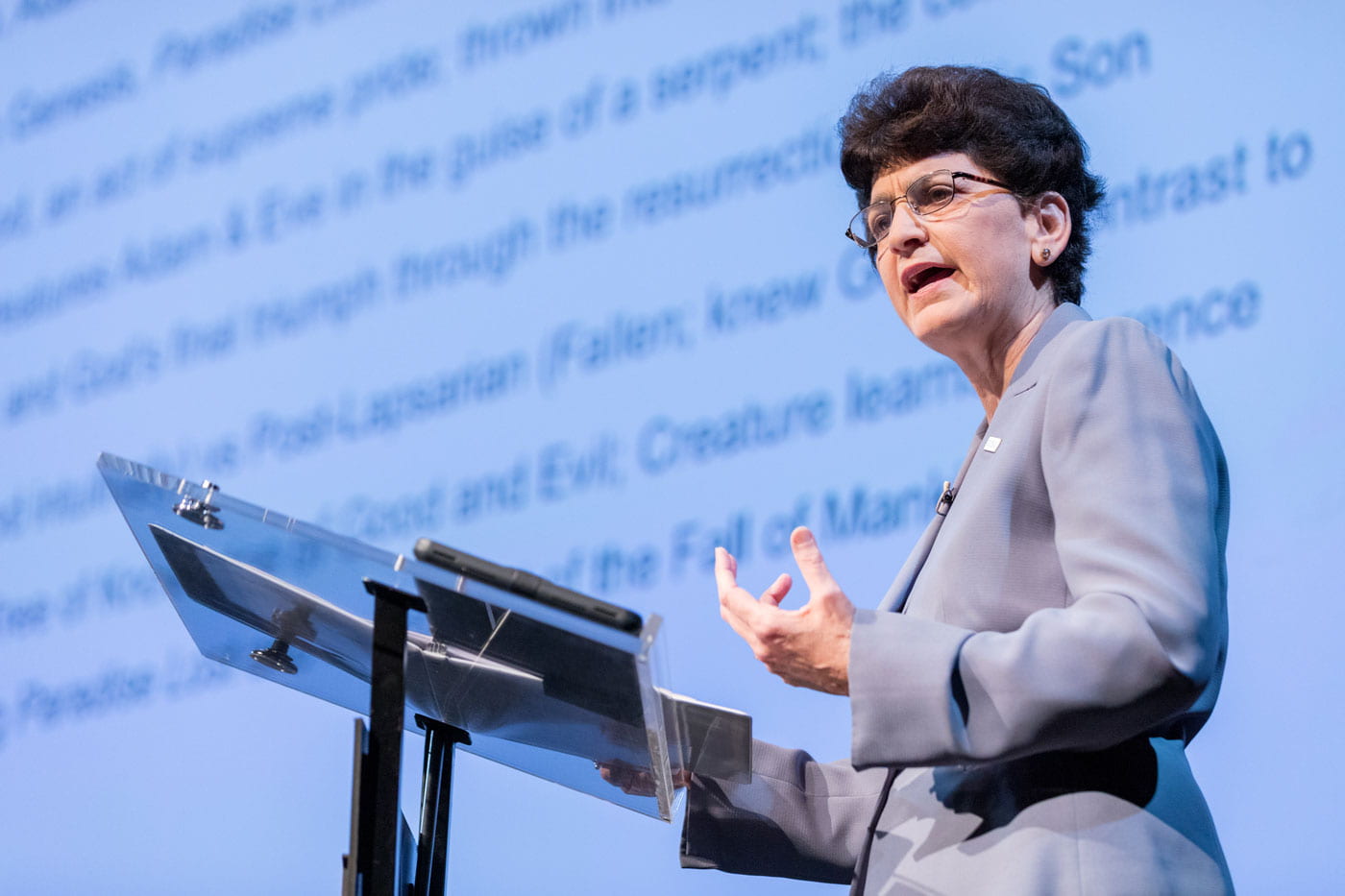
SJSU President Mary A. Papazian speaks at a 2018 Frankenstein Bicentennial event at San Jose’s Hammer Theatre. The event was one of several that SJSU’s College of Humanities and the Arts sponsored that year to explore the ethical, artistic and imaginative impacts of Mary Shelley’s literary masterpiece. Photo: David Schmitz.
San Jose State University President Mary A. Papazian has agreed to serve on the Council of Graduate Schools‘ (CGS) Humanities Advisory Committee for The Humanities Coalition, a new effort that will expand CGS’s work to understand and support the careers of PhDs.
The endeavor seeks to further enhance CGS’s understanding of humanities PhDs and their careers, and to refine humanities-specific strategies for curricular change and program improvement. One component of the new initiative is additional research to better understand the nature of early career transitions for humanists.
A scholar of the 17th century metaphysical poets and English Renaissance era, Papazian has long been a staunch advocate of the arts, humanities and creative disciplines in higher education.
In an op-ed published in the October 29 edition of the Sacramento Bee, she asserted that “the liberal arts must remain a vital part of higher education for the sake of the future of our students, our economy and our society.” The partnering of STEM disciplines with the liberal arts, she writes, can lead to true academic impact at both the graduate and undergraduate levels.
Last summer, Papazian delivered a well-received speech at the CGS Summer Workshop titled “Humanities for the 21st Century: Innovation and the Fourth Industrial Revolution.” There, she pointed out that “the hard skills learned from STEM programs are essential, but employers actually are desperate for candidates who have balanced their personal portfolios with both digital capabilities and human understanding.”
In a CGS press release announcing grant funding for The Humanities Coalition, CGS President Suzanne Ortega said, “We hope to learn more about the kinds of transitions humanities PhDs face as they move from graduate school to career. Humanities PhDs have a wide variety of career pathways in front of them. We need to make sure they know what they are and how to access them.”
Over the course of the five-year project, the advisory committee is expected to guide CGS’s efforts to increase the impact and reach of The Humanities Coalition and provide insights for addressing challenges and opportunities specific to various humanities disciplines.
CGS will issue a Request-For-Proposals (RFP) to CGS member institutions to participate in the project as funded partners and will continue to work with its current partners to collect data in both STEM and humanities fields.
Joining Papazian as Advisory Committee members are a distinguished group of educators and academics, including Carlos Alonso, dean of the Graduate School of Arts and Sciences at Columbia University; Susan Carvalho, associate provost and dean of the Graduate School at the University of Alabama; and Patricia Easton, executive vice president and provost at The Claremont Graduate University.
